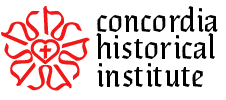1097 The Islamic Seljuk Turks were defeated by the armies of the First Crusade at Dorylaeum (the site of an ancient Phrygian city southwest of Constantinople in Asia Minor).
1523 Hendrik Voes and Johannes von Esschen, Augustinian monks in Antwerp, were burned at the stake at the “Grote Markt” in Brussels, the first martyrs of the Reformation. Martin Luther wrote a song to commemorate the event and the martyrs, entitled,“Flung to the Heedless Winds” (from the first line of the song; the German title: “Ein neues Lied wir heben an”). This was Luther’s first foray at hymnwriting, and the hymn was published in 1524.
1535 Sir Thomas More (1478–1535) was indicted for treason after refusing to acknowledge Henry VIII as head of the church.
1626 Chaplains were appointed to all British naval ships.
1643 The Westminster Assembly convened for the first time in London in the Henry VII Chapel of Westminster Abbey.
1648 The Scottish Kirk adopted the shorter Westminster Catechism, which had been approved by Parliament the year before.
1661 The Colloquy of Cassel opened. An ineffective attempt to reconcile Lutheran and Reformed doctrines, it had been arranged by William VI, Landgrave of Hesse.
1750 Jonathan Edwards (1703–1758) preached his last sermon at Northhampton, where his sermons influenced the Great Awakening.
1752 Philip William Otterbein (1726–1813), founder of the Church of the United Brethren, arrived in New York with five others where he found a field of labor with a congregation at Lancaster, Pennsylvania.
1800 The earliest recorded Methodist camp meeting in America was held in Logan County, Kentucky, near the Gaspar River Church.
1811 William Jones Boone, medical missionary to China, was born in South Carolina (d. 17 July 1864).
1824 American Congregational revivalist Charles Grandison Finney (1792–1875) was ordained at age thirty-two.
1825 William H. Walter, hymn composer, was born (d. 1893).
1835 Robert Murray M’Cheyne (1830–1843) was licensed to preach at the Presbytery of Annam, where he became a famous pastor.
1839 William George Lawes, missionary to New Guinea, was born in Aldermaston, Berkshire, England (d. 6 August 1907).
1847 Carl Ludwig Janzow, promoter of English in the Missouri Synod, was born at Heringsdorf, Pomerania (d. 5 May 1911). He emigrated with his parents to the U.S. at age six, and the family settled in the Fort Wayne, Indiana, area. Carl graduated from Concordia Seminary (Saint Louis) in 1870. He first served several parishes in Kansas and Missouri in the area around Kansas City. He then was pastor in Dryden, Minnesota, and Frohna, Missouri, before beginning a 24-year pastorate at Bethlehem Lutheran Church (Saint Louis). Toward the end of his ministry he served congregations in the vicinity of Freedom, Pennsylvania. He was a member of the Board of Directors of Concordia Publishing House (Saint Louis) and wrote an English biography of C. F. W. Walther.
1850 Henry Sieck, director of Saint John’s College (Winfield, Kansas) and mission executive of the Wisconsin District of the Missouri Synod, was born at Mannheim, Baden, Germany (d. 7 September 1916).
1854 Conrad Sigmund Fritschel (1833–1900) arrived in Dubuque, Iowa, to begin work as a missionary.
1861 Edward Frederick Moldehnke (1836–1904), first professor at the Wisconsin Synod seminary, was ordained in Koenigsberg, Germany.
1867 Canada Day — In 1864 representatives of Quebec, Ontario, Nova Scotia, New Brunswick and Prince Edward Island met in Charlottestown (PEI) to negotiate a federation of their provinces. On 1 July 1867 the British Parliament formally approved the agreement.
1876 John Chandler, hymn translator, died (b. 16 June 1806).
1878 Catherine Winkworth (b. 13 September 1827), English educator and hymn translator, died.
1881 The American Red Cross was incorporated, and founder Clara Barton was elected as its first president (1881–1904).
1882 John Henry Hill, Episcopalian missionary to Greece, died (b. 1791).
1889 The Christian Commercial Men’s Association (Gideons) was founded by Nicholson, Hill and Knight for the purpose of Christian fellowship and evangelistic effort among traveling businessmen.
1896 Harriet Beecher Stowe (b. 14 June 1811), American abolitionist and author, died.
1900 Horace Tracy Pitkin died during the Boxer Uprising in China (b. 28 October 1869). He graduated from Presbyterian Union Theological Seminary in New York and served as an American Board missionary to Paotingfu, China.
1909 Hugh T. Kerr Jr., American Presbyterian theologian, was born in Chicago, Illinois. He taught systematic theology at Princeton Theological Seminary and was the author of Compendium of Calvin’s Institutes and Compendium of Luther’s Theology. He was once the editor of the religious quarterly Theology Today.
1916 Gerhardt Wilfred Hyatt was born in Melfort, Saskatchewan, Canada (d. 30 August 1983, Arlington, Virginia). He graduated from Concordia Seminary (Saint Louis) in 1944. He served as pastor in Raleigh, North Carolina, and as a chaplain, rising to the positions of Deputy Chief of Chaplains and Chief of Chaplains in the U.S. Army. He also served as a member of the board of the LCMS Foundation, as president of Concordia College (Saint Paul, Minnesota), as assistant to the LCMS president, as an LCMS vice-president and as director of the “Forward in Remembrance” fund-raising campaign for the synod.
1922 Camp Arcadia, Michigan, was opened by the Walther League.
1942 Andraé Crouch, African American sacred music artist, was born.
1983 The Rev. Dr. Leonard Harms joined the mission staff of the LCMS’s Board for Missions as the secretary for American Indian Ministry. Before joining the board he was pastor of St. John Lutheran Church in Laurel, Montana. He had been on the Indian Ministries Committee of the Montana District for twelve years, chairing it for the past ten years.
1996 The Lutheran Church—Missouri Synod’s Church Information Center was officially opened. The CIC’s task was to answer questions on mission and ministry in the LCMS, or to connect callers directly with someone who could provide an answer.


